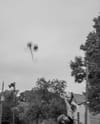Pedal Steel Para Todos
In Memory of Susan Alcorn
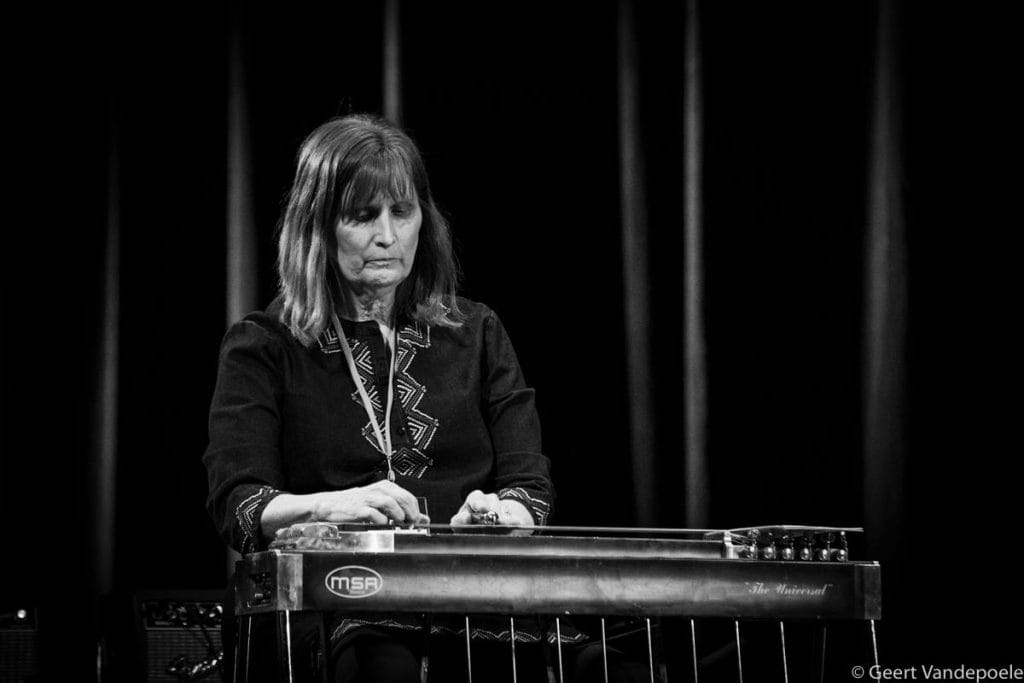
Like so many others, I was shocked to hear of the passing of Susan Alcorn, the great composer and virtuoso of the pedal steel, on January 31st. Busy performing and teaching to the very end, Alcorn was a giant of American music; based in Baltimore but a fixture of the New York underground, where I was fortunate to have seen her play on countless occasions—each of them a discovery in the truest sense.
Alcorn is my favourite kind of player—deeply rooted in a number of distinct idioms that bear upon the history of her unwieldy instrument, yet operating far above partition. You can hear the country blues that raised her in the free-fall improvisations of countless ensembles, and distinct folk melodies within the tremulous ambience that issued from her smallest gestures. Her clear voice encompassed many others, from Messiaenic birdsong to entire synthetic choirs, but there was never any mistaking her presence in a room or on a session.

More than just a varied stylist, Alcorn was a true internationalist—deeply engaged in artistic exchanges of real political and historical significance. From her earliest records, Alcorn approached the music of Latin America as an expression of cultural perseverance and necessary struggle. Her debut album, Uma, opens on the ruminative 'Uma's River Song of Love,' in which "notes lay upon chords like flowers on water." The song opens as a country raga, only to move through imaginary vistas of mourning and displacement, as Alcorn's notes explain:
The second part of the song is, for me, somewhat of a personal anthem to the liberation struggles of Latin America, especially those of the indigenous peoples. I’m reminded of a scene from the movie El Norte. A girl returns to her home looking for her mother. She finds only the silence of light through the open windows, and moths everywhere. Her mother, like all the other mothers in the village, was taken away by the army. The forests of Guatemala are filled with the anonymous burial grounds of these silent victims of a war spawned by racism and human greed.
Alcorn first visited Chile in 2003, and from this point forward, her music assumes an even more expressly anti-fascist intent, channeling the collective struggles of Latin America into a substantial catalogue of original compositions and interpretations. In an interview with Rob Shepherd, Alcorn recalls watching the US-backed coup against Allende transpire in real-time as a student in Ohio, but her stay in Santiago put her directly in touch with survivors of the Pinochet regime. Several of these connections would become close friends, such as percussionist Lukax Santana, who had spent a year inside the infamous Valparaíso prison complex before leaving for London, England.
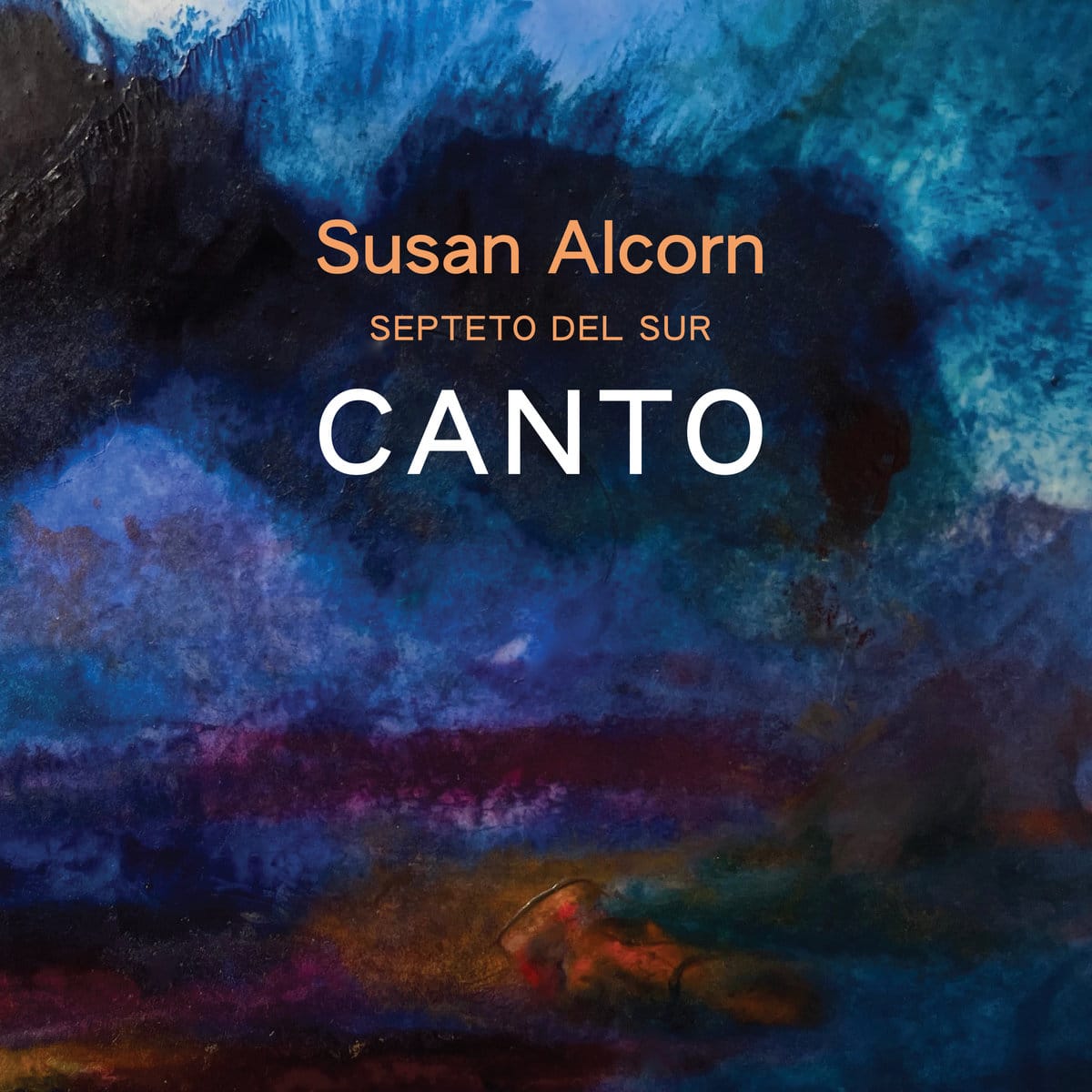
Alcorn pays tribute to Santana by name on her 2023 release, Canto—recorded in María Pinto with a Chilean ensemble, Septeto del Sur. Alcorn's composition 'Lukax' is a particular highlight, a work of surging melodicism shot through with skittish bursts of free improvisation. The song is beautifully arranged, with traditional Spanish and Andean instrumentation supporting the close interplay of pedal steel with the guitar of Luis “ToTo” Alvarez, a frequent collaborator with Santana. It's a stirring tribute to their mutual friend, and one among many. The album also includes a sprightly, pastoral theme for Argentinian singer Mercedes Sosa, previously recorded for Uma; and a climactic rendition of Victor Jara's anthem 'El derecho de vivir en paz,' or the Right to Live in Peace, urged along by vocal howls and banner solos from Alvarez and flautist Rodrigo Bobadilla.
Over the course of her career, Alcorn made ample room for Nueva Canción and related movements. Her album Sur features music by Jara and his crucial predecessor Violetta Parra, as well as Nueva Trova leader Silvio Rodríguez; and her sustained engagement with the Nueva Tango of Astor Piazzolla is a major outpost of her global songbook. But the most stirring dedications on Canto are not to individuals, nor proper nouns denoting artistic schools. '¿Dónde Están?' clearly evokes the memory of the desaparecidos—those abducted and disappeared by the many juntas and dictatorships propped up by US influence throughout the region. As movingly, the album opens on 'Suite Para Todos,' or Suite For Everyone—an audience that the far-right could never comprehend.
Like any viable society, Alcorn's music is of many origins, and it's fascinating to track the correspondences within her canon too. 'Presente: Sueño de Luna Azul,' recorded in Chile with Septeto del Sur, includes a lumbering theme from Olivier Messiaen's 1965 opus 'Et exspecto resurrectionem mortuorum,' which as Alcorn notes, was dedicated to the victims of the Nazis in the Second World War. (Messiaen himself was interred at Stalag VIII-A for two years, where he composed 'Quatuor pour la fin du temps' for the only instruments available inside.) The anti-fascist resonance is noted, but there's a personal significance to this as well, where Alcorn's best-known composition bears the manifesto-like title 'And I Await the Resurrection of the Pedal Steel Guitar'—a clear, if irreverent, riff on Messiaen's apocalyptic vision.
I like to think of the eventuality of the Resurrection of the Pedal Steel Guitar as it relates to Alcorn's social program, too; where the afterlives of this quintessential country instrument are implicated in all kinds of cultural exchanges and global itineraries. In this sense, one could say that Alcorn's music posits an extended or geopolitically corrected Americana, encompassing the whole of the Americas in its vocabulary. Hers was the outsider Texas of Ornette Coleman and Pauline Oliveros, and from her earliest days gigging around Houston, Alcorn possessed a real sensitivity to the composite strangeness of its musical cultures.
In a 2006 essay 'The Road, the Radio, and the Full Moon,' Alcorn narrates the many vectors of migration that created Houston's music scenes. "Norteño mixed with r&b and country" in Chicano culture, Alcorn explains, as Cajun influence extended west from Louisiana; Houston jazz, "deeply rooted in the blues, funk, Creole and country" of the region, condensed and re-expressed this ferment with effortless depth, audible in hard swinging players like Arnett Cobb.
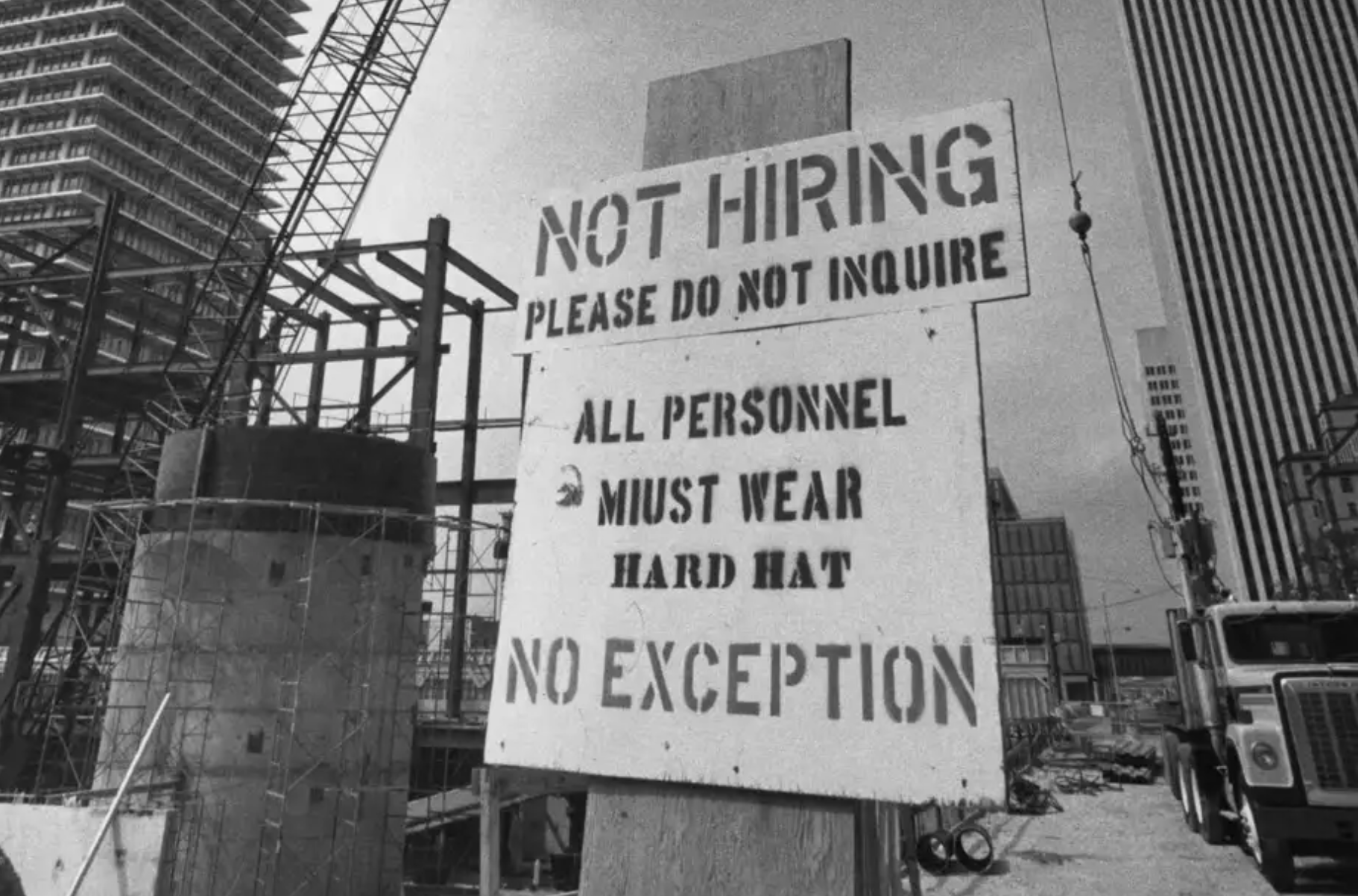
By her account, the country music scene in which she cut her teeth was just as various—that is, until the middle of nineteen-eighties, when the region's second oil boom and subsequent bust would both homogenize and then dismiss the city's live music scenes. (Inside a decade, Houston saw the disappearance of more than 225,000 jobs.) It's a compelling thesis, issued offhand in the course of a fraught personal travelogue.
Alcorn is an unassumingly great writer, and her weekend tour journal gives a vivid and non-judgemental account of the southern US as viewed by a working musician on the country-western circuit. As one might expect, it is a territory marred by quiet violence, hollow religiosity, and jingoism. Even so, Alcorn's Texas is a politically riven gateway to Mexico and Central America; a place where working people partake of a common and syncretic music almost in spite of their professed values. And as the US rapidly succumbs to a nigh-fascist wave of reaction, it's hard not to feel the loss of Susan Alcorn in a social register as well, where her music gathered so many voices and traditions of resistance in its breadth.
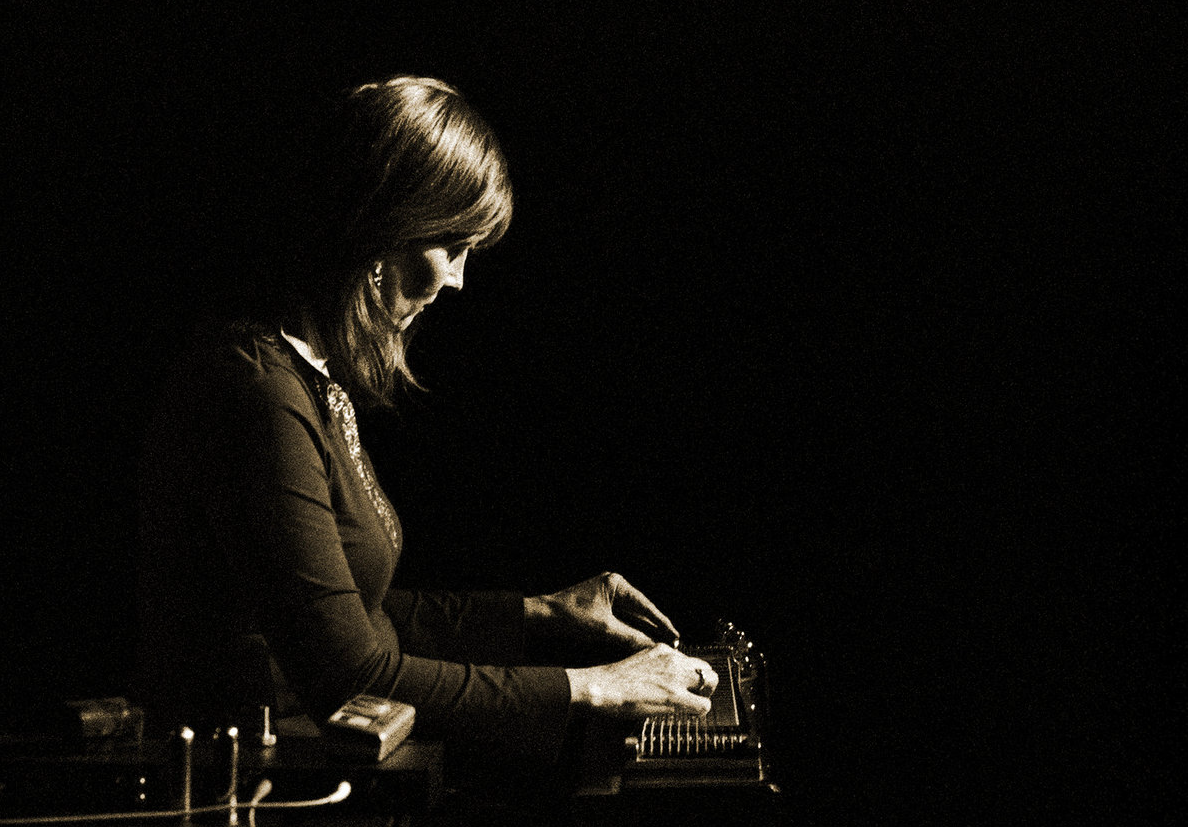
Though Alcorn should be confidently named alongside a social composer like Frederic Rzewski, she was also the most lucid, plural voice in hundreds of ensembles, and an ensemble unto herself. In clubs and churches, I was fortunate enough to hear her on so many nights, and can't easily accept the closing of this era. On last night's episode of Radio State, I played one of her recent, more exploratory solos with the several Cantos I discuss above, and still couldn't quite believe what I was hearing—something popular and rare.
Radio State - February 3rd, 2025
Cantos (for Susan Alcorn)
Such ironies attend the gift of truly universal song, for every canto general has its singer. But Susan Alcorn was the kind of virtuoso who is hardly regarded in the artistic milieux of imperialism—an historically accountable communicator of familiar means, however singular the output. Of all the meanings that one might assign the resurrection of the pedal steel guitar, this could be one: a sense of time and place, and then the suppleness of history to touch. Thanks Susan Alcorn for the music lessons, in deep listening and in partisan discernment of what truly matters. Viva la guitarra de pedal steel!
